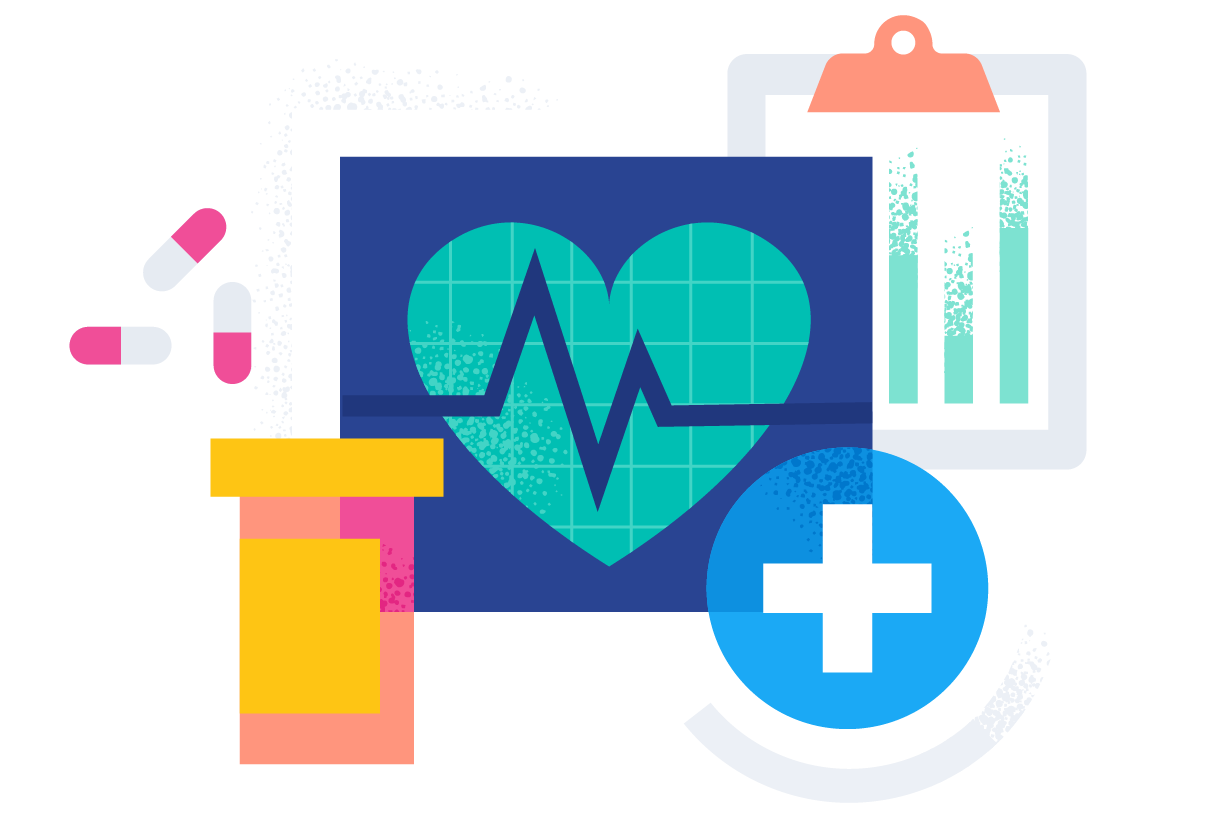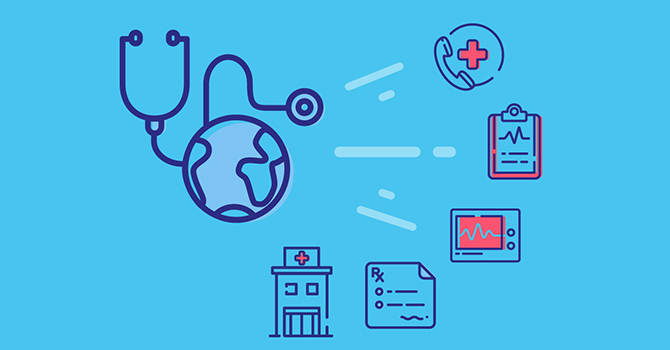Discover How Health Care RCM Processes Transform Administrative Tasks Into Seamless Procedures
In the ever-evolving landscape of healthcare, Income Cycle Administration (RCM) processes have arised as a pivotal force in changing management jobs right into smooth operations. By using innovative modern technology and improved techniques, RCM provides an innovative approach to managing individual registration, invoicing, and claims handling. These technologies not only decrease mistakes and boost efficiency yet also accelerate cash money flow and raise client complete satisfaction. Nonetheless, what lies underneath the surface of this transformative shift? What elaborate systems and approaches are utilized to ensure such smooth assimilation? The response to these concerns are crucial for understanding the future of health care administration.
Understanding Medical Care RCM
Earnings Cycle Administration (RCM) in healthcare is a vital procedure that guarantees the monetary wellness of clinical institutions by supervising the whole lifecycle of individual solution revenue. It incorporates various administrative and scientific features, beginning from the initial organizing of a clinical consultation to the ultimate collection of repayment for solutions rendered. Healthcare RCM. RCM is essential in managing the complexities of invoicing and compensations, making certain that doctor receive payment for their solutions efficiently and accurately
Key elements consist of patient organizing, insurance verification, fee capture, insurance claim submission, and payment uploading. RCM is not solely regarding economic collections; it additionally intends to enhance patient contentment by lowering invoicing errors and enhancing openness.
The performance of RCM is contingent upon the seamless assimilation of technology and human resource expertise. Employing advanced software services allows health care organizations to automate repeated jobs, thereby minimizing administrative problems. In addition, experienced personnel are necessary in browsing regulative needs and payer plans, guaranteeing compliance and optimizing revenue recovery.
Enhancing Individual Enrollment
Simplifying client enrollment is an essential step in boosting the effectiveness of medical care income cycle administration. It entails optimizing the initial communication in between individuals and medical care suppliers to make certain a smooth information collection process.
Automated systems help in confirming insurance policy eligibility in real-time, which not only decreases administrative concerns but also enhances patient complete satisfaction by stopping unforeseen payment problems. Additionally, pre-registration procedures allow individuals to full kinds online before their go to, decreasing delay times and making it possible for team to concentrate on even more complicated tasks. This aggressive strategy makes certain that all required information is gathered and validated prior to care is provided, thereby avoiding hold-ups in succeeding billing and declares procedures.
Training personnel to utilize these systems efficiently is essential. It ensures that information entry is precise and consistent, cultivating a smooth transition from patient registration to other profits cycle procedures. Ultimately, streamlining person enrollment lays the structure for an extra reliable, patient-centered medical care delivery version.
Effective Billing Solutions
Efficient payment remedies are essential to maximizing health care income cycle monitoring. They act as the backbone for making sure precise and prompt financial purchases in between patients, doctor, and insurance coverage companies. By leveraging sophisticated modern technology and structured processes, medical care facilities can dramatically reduce invoicing errors, decrease hold-ups, and improve money circulation. Applying durable payment systems facilitates precise charge capture, guaranteeing all solutions provided are represented and billed correctly. Automation devices can resolve billing information with clinical documents, stopping and decreasing discrepancies case denials.
Additionally, reliable payment solutions encourage doctor to offer transparent prices and billing info to individuals, fostering trust and boosting client contentment. Real-time invoicing systems allow medical care staff to supply instant comments on person eligibility and out-of-pocket costs, improving the total person experience. These remedies likewise permit smooth assimilation with digital wellness documents (EHR), making sure that payment and scientific details remain in sync, reducing management problems on medical care companies.
Incorporating efficient payment remedies right into the revenue cycle monitoring structure not only enhances functional performance however also reinforces financial performance. By minimizing mistakes, increasing settlement cycles, and boosting client communication, medical care organizations can focus more on delivering top quality treatment while maintaining economic sustainability.
Optimizing Cases Processing

In the realm of medical care revenue cycle administration, enhancing insurance claims handling is vital for maintaining monetary health and wellness and functional effectiveness. A structured claims process minimizes the time between service shipment and repayment, thereby enhancing capital and minimizing the possibility of errors. Effective cases processing begins with accurate documentation and coding, which are important to guarantee that insurance claims are sent without inconsistencies that can result in hold-ups or denials.
Leveraging advanced innovation, such as automated claims administration systems, can dramatically enhance the effectiveness of this process. These systems are created to automate recurring tasks, track claims with each phase, and flag potential issues early. This not only decreases the management burden on staff however likewise boosts the accuracy of submissions by minimizing human error.

Enhancing Income Collection

In addition, denial management plays an essential role in maximizing revenue collection. Recognizing patterns in case rejections, recognizing root causes, and executing restorative actions can considerably lower persisting issues, thus boosting cash circulation. Service providers need to purchase robust analytics devices that facilitate comprehensive reporting and analysis, permitting them to address and remedy rejection patterns promptly.
Timely follow-up on superior insurance claims is one more important element of income collection. Developing an organized approach to monitor and pursue aged accounts makes certain that no revenue is left unclaimed. Using committed personnel or automated systems to track these claims can improve effectiveness and ensure regular money inflows.
Conclusion
Health Care Income Cycle Monitoring (RCM) procedures dramatically improve administrative performance by integrating sophisticated innovation and human know-how (Healthcare RCM). The automation of person registration, invoicing, and declares handling decreases errors and increases capital, ultimately improving client satisfaction with real-time insurance coverage confirmation and clear invoicing. By making sure seamless operational browse around here flow, RCM enables doctor to prioritize top quality care while optimizing profits recuperation and keeping monetary stability, therefore changing administrative tasks right into effective, streamlined operations
Income Cycle Monitoring (RCM) in health care is a vital procedure that makes certain the economic wellness of clinical institutions by managing the entire lifecycle of person service profits.Enhancing person enrollment is an essential step in enhancing the effectiveness of healthcare revenue cycle management. It entails enhancing the preliminary interaction in between individuals and medical care companies to guarantee a smooth data collection procedure.In addition, reliable payment remedies equip medical care carriers to provide transparent rates and billing information to people, promoting trust fund and improving client contentment. Real-time billing systems allow health care staff to supply immediate feedback on person qualification and article out-of-pocket costs, improving the overall client experience.